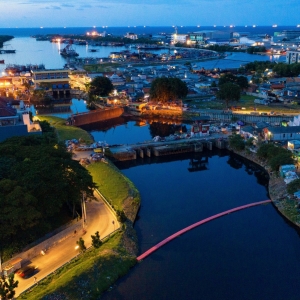The Stream, November 13, 2019: Australia Prepares to Mobilize Army as 100+ Wildfires Engulf NSW, Queensland
The Global Rundown
Australia prepares to mobilize its army to fight deadly wildfires in New South Wales and Queensland. Zimbabwe prepares to move 600 elephants out of drought-stricken wildlife parks in the country’s south. Increased oil drilling in water-stressed parts of the Western U.S. could jeopardize future supply, a study warns. Recent severe flooding in England is a result of poor land management and global warming, experts say. Researchers say insecticides and chemicals for illegal marijuana operations are poisoning water and wildlife in parts of the United States.
“The true crime here is the fact that they’re killing off basically America’s public lands, killing off the wildlife, killing off our water.” –Kevin Mayer, a law enforcement assistant with the U.S. Forest Service, in reference to insecticides and chemicals that are being used to grow marijuana illegally in U.S. forests. Some of the chemicals that have been found are banned, and officials say they could linger in ecosystems and waterways for years. NPR
Latest WaterNews from Circle of Blue
What’s Up With Water – November 11, 2019 — This week’s edition of What’s Up With Water includes coverage on lead in Canada’s drinking water, devastating floods in eastern Africa, and water cuts due to wildfires in California.
HotSpots H2O: Flash Floods Strike Eastern Africa, Displacing 370,000 People — Intense flooding hit several nations in eastern Africa recently, including Somalia, Kenya, and South Sudan. The deluges have affected more than a million people in the region.
By The Numbers
100+ Fires currently blazing across New South Wales and Queensland, Australia. Officials fear that the fires will continue to spread amid hot, dry conditions, and are preparing to deploy the country’s army to aid in fighting the blazes. The Guardian
In context: In Australia, Echoes of Past, Glimpses of Future As Country Braces for Hot, Dry Summer.
600 Elephants living in drought-stricken wildlife conservancies in southern Zimbabwe that will be relocated to other parts of the country, according to the Zimbabwe Parks and Wildlife Management Authority. More than 200 elephants in the region have already died due to a lack of water. Two prices of lions, a pack of wild dogs, 2,000 impala antelope, 50 buffalo, and 40 giraffes will also be moved as part of the “biggest translocation of wildlife” in Zimbabwe’s history. The Guardian
Science, Studies, and Reports
A new report finds that 60 percent of oil and gas drilling leases that were offered in the U.S. in 2017 are located in water-stressed areas. The report, published by the Center for American Progress, warns that increased drilling in these areas could jeopardize water supply for farms and communities. Reuters
On the Radar
Severe floods have swept through parts of northern England recently, and experts say the deluges are due to a combination of poor rural management, building on floodplains, and global warming. The Committee on Climate Change, which advises the UK government, states that increased flooding is climate change’s biggest impact on the country. The Guardian
Kayla Ritter is a recent graduate of Michigan State University, where she studied International Relations and Teaching English to Speakers of Other Languages. She is currently based in Manton, Michigan. Kayla enjoys running, writing, and traveling. Contact Kayla Ritter







Leave a Reply
Want to join the discussion?Feel free to contribute!